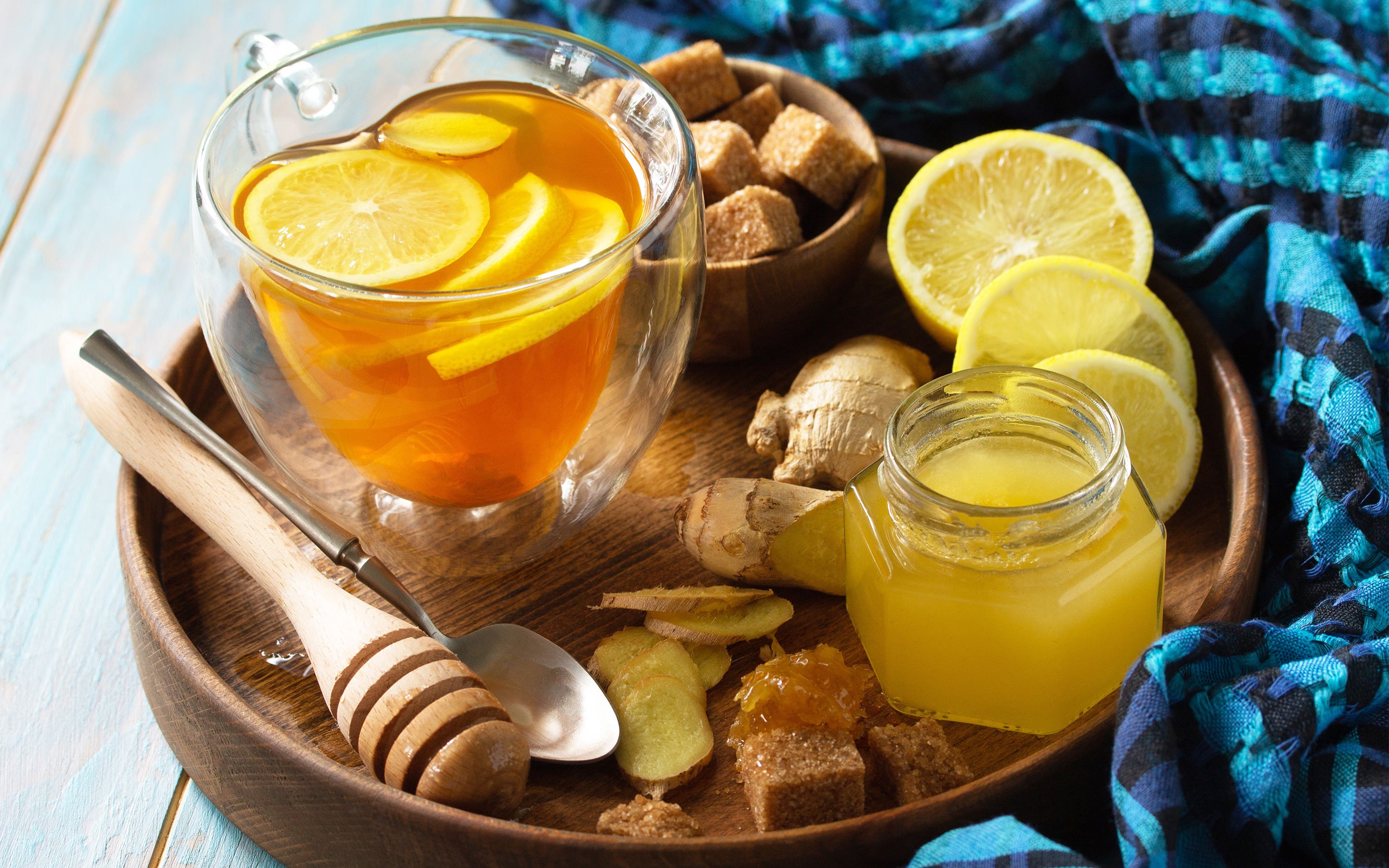Wondering which teas are best for fighting cold or flu? Good news: there are plenty. As temperatures plummet and winter settles in, we all brace ourselves for that time of year when germs seem more aggressive than ever. While tried-and-true decongestants and antihistamines may take the edge off when we’re under the weather, there’s something comforting about a hot cup of tea to help nurse us back to good health. Many tea and tisane blends boast ingredients with preventative and curative properties, so read on to learn about the best teas for cold and flu season.
Peppermint
Known for its decongestive powers, a cup of peppermint tea can open up the nasal passages and quite literally help us breathe more easily when we’re congested. That’s because peppermint leaves contain a compound also commonly used in cough drops: menthol, which enters the nose through the steam we inhale as we raise the cup for each sip. Whether paired with notes of citrus, chocolate, or blue cornflower, peppermint tea is an ideal pantry staple to keep on hand for winter and all its contagious perils.
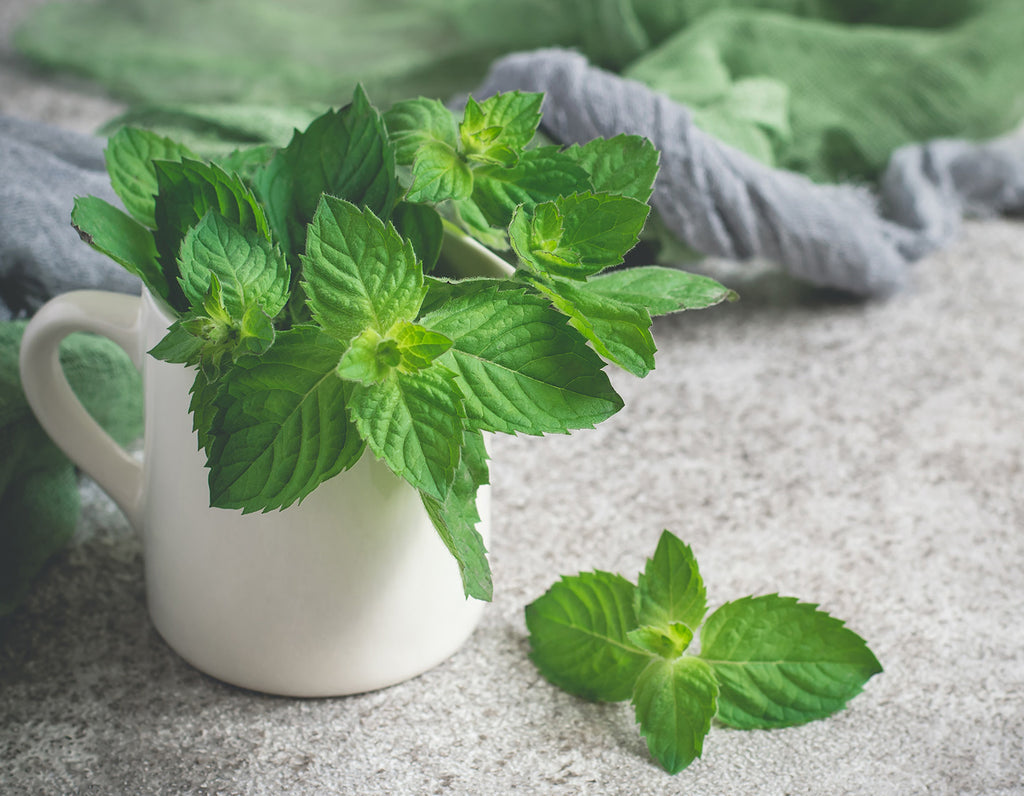
Chamomile
One of the more well-known herbal tea ingredients, chamomile has built a reputation for its ability to soothe the body and mind into a restful state of calm. There’s likely a chemical reason for this: an antioxidant called apigenin, thought to bind to brain receptors and encourage a comfortable descent into sleep--which can be elusive when we’re tossing and turning with a sore throat and stuffy nose. Beloved on its own, exquisite when paired with lavender, and excellent inside a green, white, or black tea blend, chamomile will forever be a classic tea for getting over a cold.
Ginger
If you’re looking for a cup of tea brimming with anti-inflammatory and antioxidant properties, try a cup of ginger tea. This ancient root boasts a bioactive compound known for fighting free radicals, reducing inflammation, and even calming the type of stomach upset that often goes hand-in-hand with a cold or flu virus. It may also act as a mild anticoagulant, thinning the blood in much the same way aspirin does, which could ease the headaches that arise from congestion and coughing. This unique, earthy tea ingredient also imparts a gentle sense of revitalization and warmth.

GINGER LEMONGRASS TODDY
Shore up your immune system during cold and flu season with this non-alcoholic hot toddy made with Ginger Lemongrass, a simple and natural elixir to calm nerves and boost defenses. This tea’s restorative powers come from its precise combination of ginger, lemongrass, licorice, spearmint, and lemon, each of which benefits the immune system in its own distinct way.
INGREDIENTS
• 1 Tea Forté Ginger Lemongrass pyramid infuser (or 1 tsp of loose tea)
• 1 cup water
• 1 tsp brown sugar
• 1 tsp honey
• 1 sliced lemon round, sliced thin
• 1 cinnamon stick
DIRECTIONS
- Bring one cup of fresh water to a boil.
- Place one Ginger Lemongrass infuser into the cup, pour in water and steep for 5 minutes, removing infuser when done. If using loose tea, spoon the leaves into a infuser basket and pour the water over the leaves, steep for 5 minutes and remove basket when done.
- Stir in brown sugar and honey until dissolved.
- Garnish with a freshly-cut lemon round and cinnamon stick.
Elderberry
Widely used from ancient Egypt to modern apothecaries around the world, elderberry is a wonderful addition to any tea blend thanks to its ability to lessen the length and severity of the flu. While raw elderberries and their bark and blossoms contain toxins that should not be ingested, cooked and commercially prepared elderberries are safe to eat or drink, and carry with them a host of benefits, including the ability to ease muscle aches, headaches, and congestion. Their immune-boosting properties, including an abundance of vitamin C, make elderberry tea an intelligent choice for those hoping to stave off or shorten the duration of the flu.
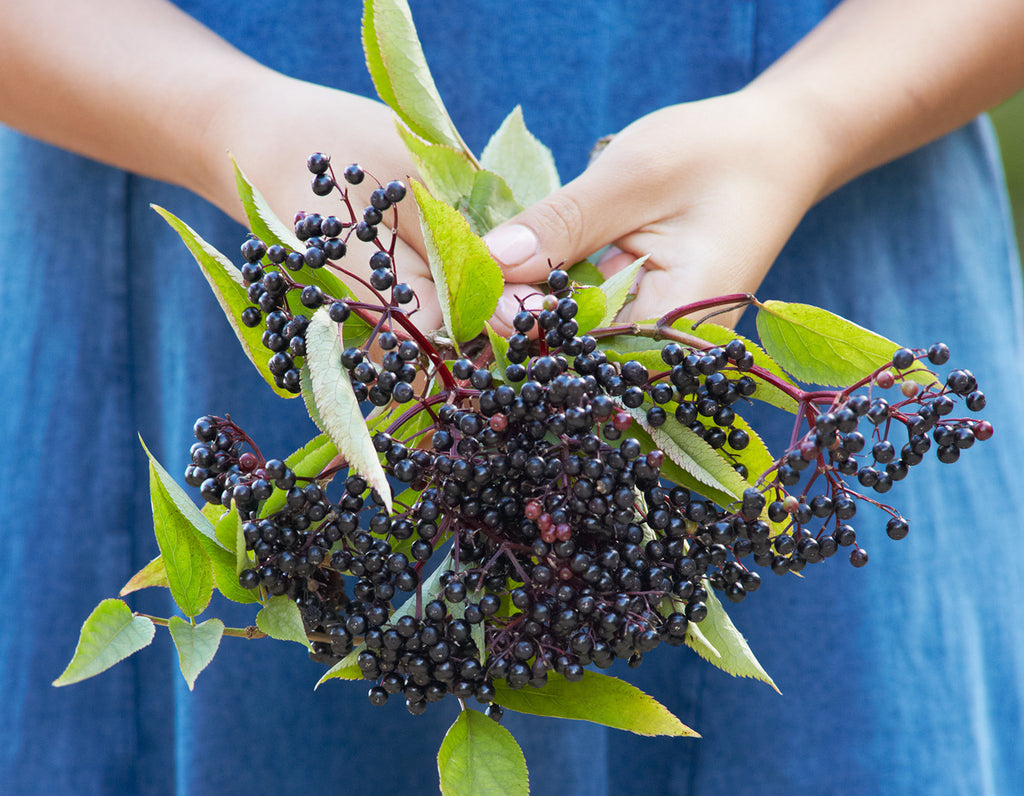
Green Tea
The health-forward properties of green tea are so plentiful, some might say they border on magical. This superfood may be enjoyed in two distinct ways: as sencha, in which dried tea leaves are steeped in hot water and discarded before consuming the drink, and matcha, in which green tea leaves are fully powdered, prepared in an infusion with hot water or milk, and consumed entirely.
Both types of green tea are full of antioxidants, L-theanine (a compound that takes the edge off of the tea’s caffeine content without sacrificing the energy it imparts). If you’re caffeine-sensitive, feeling unwell from a cold or the flu, and wish to take a nap or go to bed within a couple of hours, it may be wise to wait to enjoy a cup of green tea, since its gentle energy boost is best reserved for waking hours. If you’re powering through a task while ill, green tea may be the perfect solution to help you stay alert and focused even while under the weather.
Rosehip
While rosehip’s use in skincare and beauty products has recently increased over revelations about its skin-soothing abilities, it’s also a fantastic ingredient for tea enthusiasts who are fighting off cold or flu germs. Rosehip boasts an impressive amount of vitamin C -- more than nearly any other edible botanical -- and its immunity-boosting properties are equally noteworthy. An added perk: its ability to boost collagen production in the skin, giving you a refreshed appearance even as you recover from that winter bug.
Hibiscus
Refreshing, tart, and crisp, hibiscus flowers are a beautiful tea ingredient packed with antioxidants and antibacterial properties. Its deep fuchsia color and tangy flavor are a welcome addition to the array of teas known for battling cold-weather germs, and it makes an excellent iced tea for those who want a break from hot beverages and wish for something cool to soothe the throat instead.
Whichever tea you choose to help you prevent or fight off a cold or flu, Tea Forté’s luxury tea blends have something to please every palate. From gentle herbal tisanes to energy-boosting matcha powders and invigorating black tea blends, there’s a perfect blend waiting to help you feel better.
NOTE: These statements have not been evaluated by the Food and Drug Administration. These teas are not intended to diagnose, treat, cure, or prevent any disease. Always consult your physician for personalized medical advice or another qualified healthcare provider with questions regarding a medical condition.
You may also enjoy
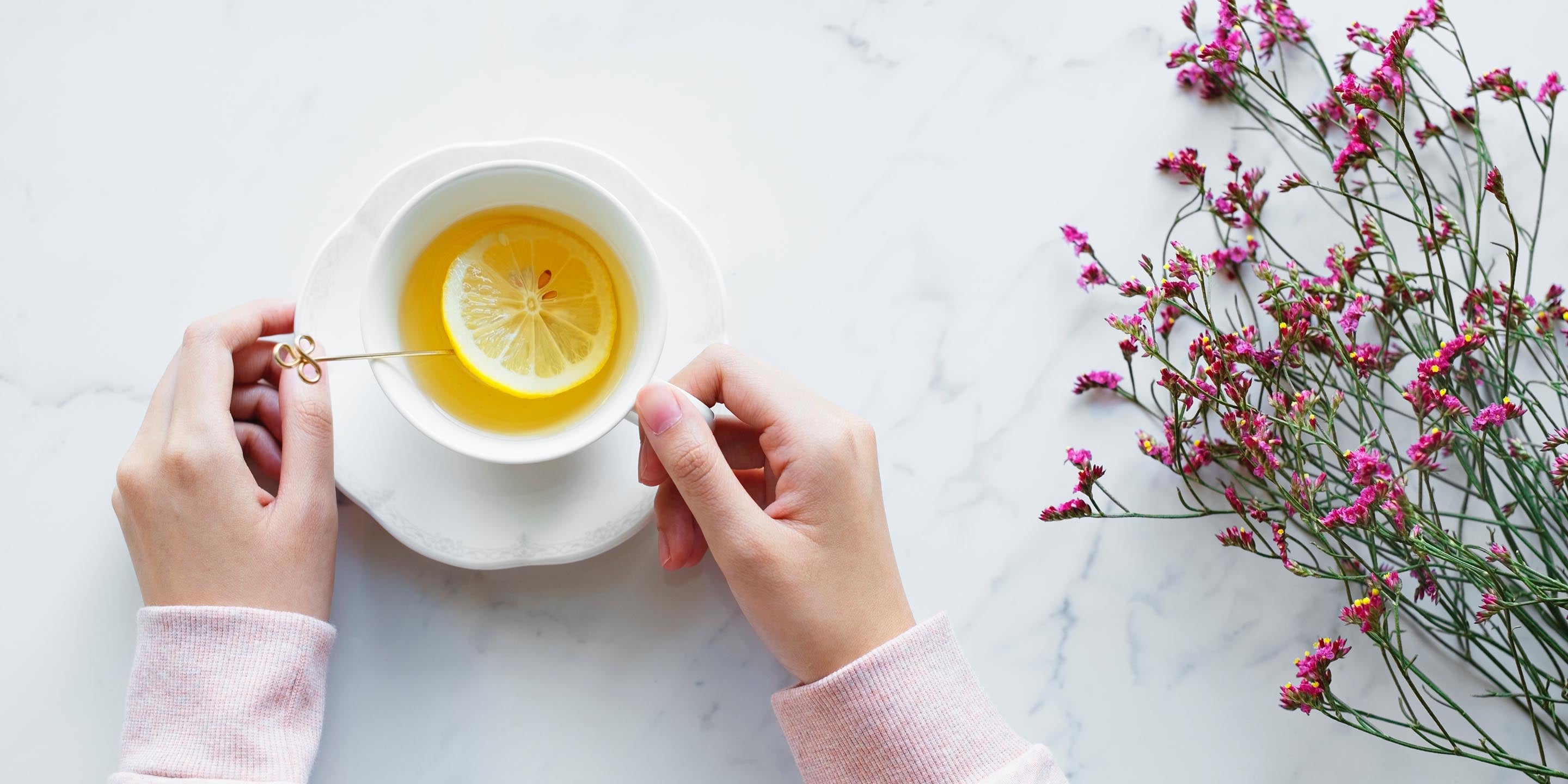
Health Benefits
The 7 Health Benefits of Tea
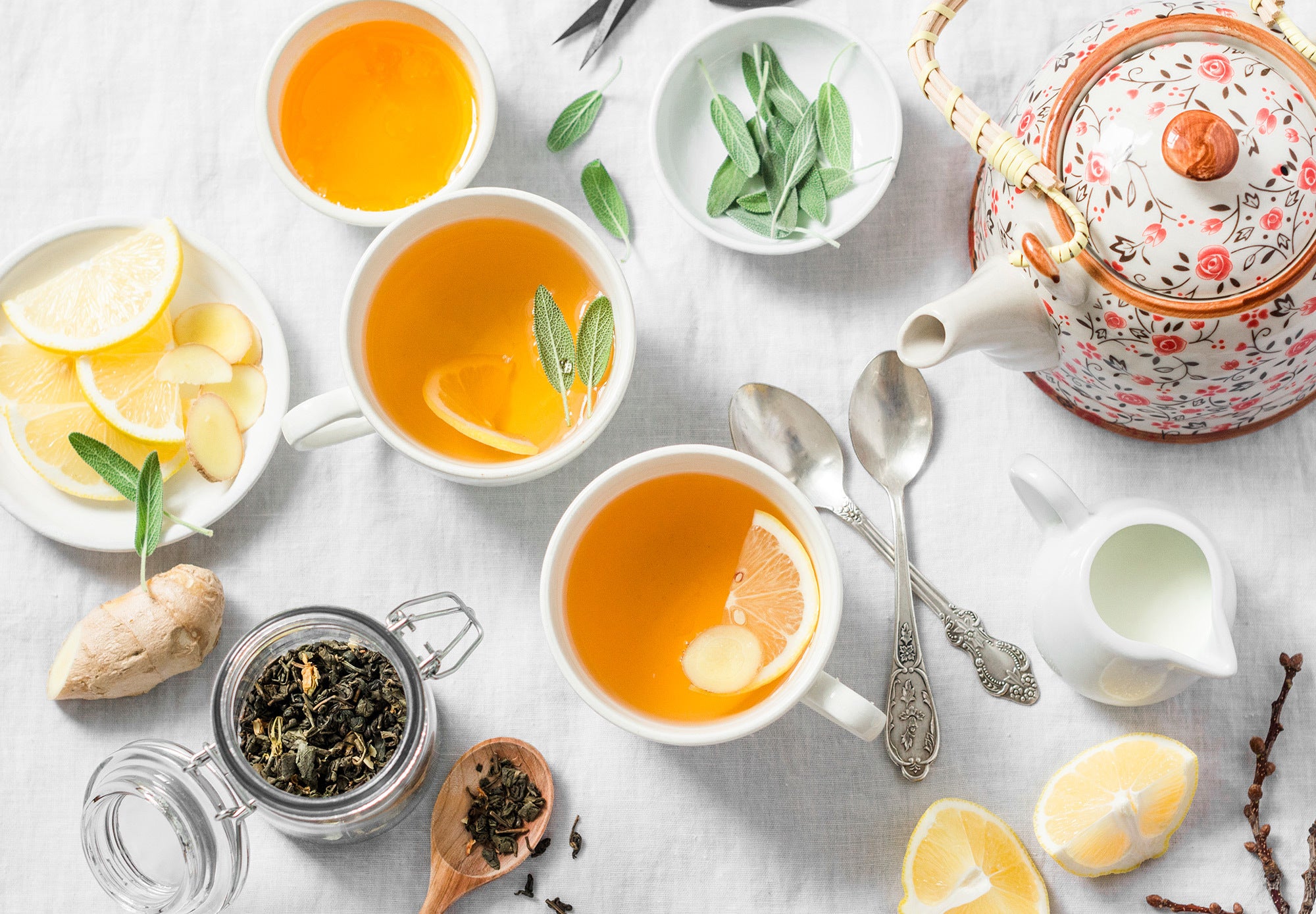
Health Benefits
The Health Benefits of Green Tea

